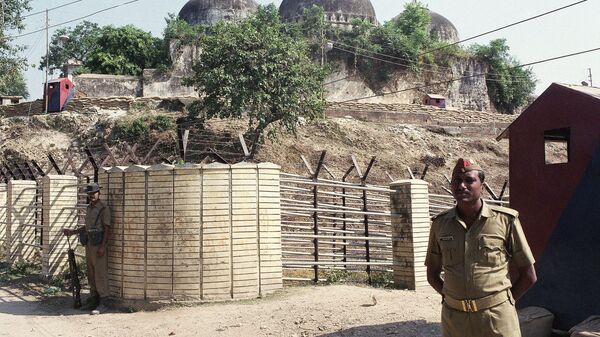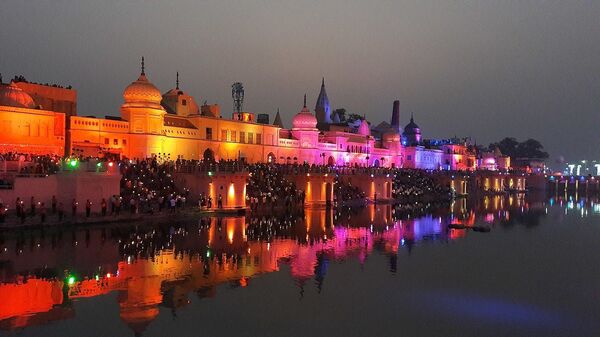All of the accused in the Babri Masjid demolition case have been acquitted by the Special Central Bureau of Investigation (CBI) Court in Lucknow, Uttar Pradesh after a judge ruled that there was insufficient evidence against the suspects.
Neither the BJP nor any of its top leaders have reacted to the court ruling so far.
Thirty-two people, including two former chiefs of India's nationalist Bharatiya Janata Party, Lal Krishna Advani and Murli Manohar Joshi, were facing charges of the demolition of the Ram Janambhoomi-Babri Masjid structure. Twenty-six out of the 32 accused individuals were physically present in the court today. Six accused including Advani, Murli Manohar Joshi, Uma Bharati, and Kalyan Singh appeared via video conferencing. Uma Bharati had tested positive for COVID-19 a few days ago.
Vinay Katiyar, Uma Bharati, Giriraj Kishore, Vishnu Hari Dalmia, and Sadhvi Ritambara were also accused of making religiously provocative speeches, which led to the demolition of the structure.
Bihar Deputy Chief Sunil Kumar Modi said he was present at the venue on the day in question, noting it was "all spontaneous", and denying any conspiracy behind the events.
I was witness to the entire incident of 6th Dec. It was all spontaneous no conspiracy.I was conducting the meeting from dais I was surprised when some Kar Sewaks climbed Babri str.Advaniji was unhappy.सत्यमेव जयते ।#BabriDemolitionCase
— Sushil Kumar Modi (@SushilModi) September 30, 2020
Ninety-two-year-old former Deputy PM Lal Krishna Advani denied his involvement in the alleged conspiracy along with "Kar sevaks" or volunteers to demolish the disputed structure in Ayodhya on 6 December 1992. He said he was completely innocent and had been unnecessarily dragged into the case for political reasons.
The site was the location of decades-long legal, religious, and political battles. Its demolition by Hindu activists in 1992 sparked some of the worst communal riots in post-independence India, which lasted for two months, claiming lives of at least 2,000 people, most of them Muslim believers.



